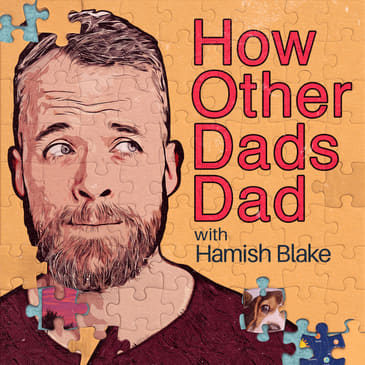Craig Foster - former Socceroo captain, legendary sports broadcaster, social justice champion… but his most important job? You guessed it… Good 'ol Dad!
As a compassionate and thoughtful leader who spends much of his time helping those who don't have a voice, Craig talks about why justice and fairness are core tenets of his and how this informs his parenting. Fozz also discusses shepherding his kids though the teenage years and the almost comical lengths he’s gone to keep a watchful eye. And as a leading advocate in the multicultural and refugee space, he speaks quite beautifully about the commonality created by parenting, and that when you strip things back, what we all indisputably share as parents is a deep desire for our kids to be safe, happy and loved. We told you he was thoughtful!
Craig’s CV is long, varied and representative of his desire to make a positive impact. He’s got an AM for humanitarian services, nominated as Australian of the year, a member of The Australian Multicultural society, an Adjunct Professor of Sport and Social Responsibility and an author. Oh, and 2022 he was named Father of the Year, which as he describes to Hamish, he views as an opportunity to advocate for kids and parents in the multicultural community and the huge benefit that father figures can have mentoring kids who are not their own, something that Craig does a lot of himself.
Huge thanks to Fozz for coming on and talking so honestly, passionately and with such thoughtfulness. What a treat for us. And what a wonderful leader to have in our community
—-
Our Hertz and Merch Comp is still running! For your chance to get your hands on a Polestar EV for the weekend and some very special YETI How Other Dads Dad Tumblers head to hertz.com.au/hoddev - Terms and conditions apply and are available at the website, entries close Dec 4 2023. Big thanks to Hertz for making it all happen.
——
If you wanna drop us a note, we bloody love hearing from you. You can do so at howotherdadsdad.com - thanks so much for all the correspondence we get.
See omnystudio.com/listener for privacy information.


